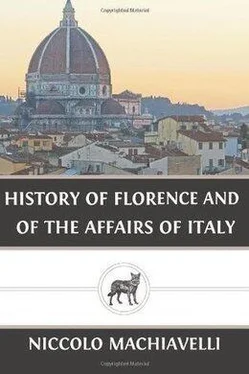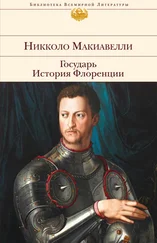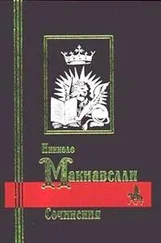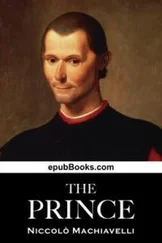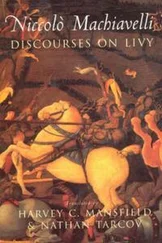Николо Макиавелли - History of Florence and of the Affairs of Italy
Здесь есть возможность читать онлайн «Николо Макиавелли - History of Florence and of the Affairs of Italy» весь текст электронной книги совершенно бесплатно (целиком полную версию без сокращений). В некоторых случаях можно слушать аудио, скачать через торрент в формате fb2 и присутствует краткое содержание. Год выпуска: 2014, Издательство: epubBooks Classics, Жанр: История, на английском языке. Описание произведения, (предисловие) а так же отзывы посетителей доступны на портале библиотеки ЛибКат.
- Название:History of Florence and of the Affairs of Italy
- Автор:
- Издательство:epubBooks Classics
- Жанр:
- Год:2014
- ISBN:нет данных
- Рейтинг книги:3 / 5. Голосов: 1
-
Избранное:Добавить в избранное
- Отзывы:
-
Ваша оценка:
- 60
- 1
- 2
- 3
- 4
- 5
History of Florence and of the Affairs of Italy: краткое содержание, описание и аннотация
Предлагаем к чтению аннотацию, описание, краткое содержание или предисловие (зависит от того, что написал сам автор книги «History of Florence and of the Affairs of Italy»). Если вы не нашли необходимую информацию о книге — напишите в комментариях, мы постараемся отыскать её.
History of Florence and of the Affairs of Italy — читать онлайн бесплатно полную книгу (весь текст) целиком
Ниже представлен текст книги, разбитый по страницам. Система сохранения места последней прочитанной страницы, позволяет с удобством читать онлайн бесплатно книгу «History of Florence and of the Affairs of Italy», без необходимости каждый раз заново искать на чём Вы остановились. Поставьте закладку, и сможете в любой момент перейти на страницу, на которой закончили чтение.
Интервал:
Закладка:
Guido the anti–pope died, and Giovanni of Fermo was appointed in his stead, who, being favored by the imperialists, lived at Montefiascone. Pope Alexander being at Tusculum, whither he had been called by the inhabitants, that with his authority he might defend them from the Romans, ambassadors came to him from Henry, king of England, to signify that he was not blamable for the death of Thomas à Becket, archbishop of Canterbury, although public report had slandered him with it. On this the pope sent two cardinals to England, to inquire into the truth of the matter; and although they found no actual charge against the king, still, on account of the infamy of the crime, and for not having honored the archbishop so much as he deserved, the sentence against the king of England was, that having called together the barons of his empire, he should upon oath before them affirm his innocence; that he should immediately send two hundred soldiers to Jerusalem, paid for one year; that, before the end of three years, he should himself proceed thither with as large an army as he could draw together; that his subjects should have the power of appealing to Rome when they thought proper; and that he should annul whatever acts had been passed in his kingdom unfavorable to ecclesiastical rule. These terms were all accepted by Henry; and thus a great king submitted to a sentence that in our day a private person would have been ashamed of. But while the pope exercised so great authority over distant princes, he could not compel obedience from the Romans themselves, or obtain their consent that he should remain in Rome, even though he promised to intermeddle only with ecclesiastical affairs.
About this time Frederick returned to Italy, and while he was preparing to carry on new wars against the pope, his prelates and barons declared that they would abandon him unless he reconciled himself with the church; so that he was obliged to go and submit to the pope at Venus, where a pacification was effected, but in which the pope deprived the emperor of all authority over Rome, and named William, king of Sicily and Puglia, a coadjutor with him. Frederick, unable to exist without war, joined the crusaders in Asia, that he might exercise that ambition against Mohammed, which he could not gratify against the vicars of Christ. And being near the river Cydnus, tempted by the clearness of its waters, bathed therein, took cold, and died. Thus the river did a greater favor to the Mohammedans than the pope's excommunications had done to the Christians; for the latter only checked his pride, while the former finished his career. Frederick being dead, the pope had now only to suppress the contumacy of the Romans; and, after many disputes concerning the creation of consuls, it was agreed that they should elect them as they had been accustomed to do, but that these should not undertake the office, till they had first sworn to be faithful to the church. This agreement being made, Giovanni the anti–pope took refuge in Mount Albano, where he shortly afterward died. William, king of Naples, died about the same time, and the pope intended to occupy that kingdom on the ground that the king had left only a natural son named Tancred. But the barons would not consent, and wished that Tancred should be king. Celestine III., the then pope, anxious to snatch the kingdom from the hands of Tancred, contrived that Henry, son of Frederick should be elected emperor, and promised him the kingdom on the condition that he should restore to the church all the places that had belonged to her. To facilitate this affair, he caused Gostanza, a daughter of William, who had been placed in a monastery and was now old, to be brought from her seclusion and become the wife of Henry. Thus the kingdom of Naples passed from the Normans, who had been the founders of it, to the Germans. As soon as the affairs of Germany were arranged, the Emperor Henry came into Italy with Gostanza his wife, and a son about four years of age named Frederick; and, as Tancred was now dead, leaving only an infant named Roger, he took possession of the kingdom without much difficulty. After some years, Henry died in Sicily, and was succeeded in the kingdom by Frederick, and in the empire by Otho, duke of Saxony, who was elected through the influence of Innocent III. But as soon as he had taken the crown, contrary to the general expectation, he became an enemy of the pope, occupied Romagna, and prepared to attack the kingdom. On this account the pope excommunicated him; he was abandoned by every one, and the electors appointed Frederick, king of Naples, emperor in his stead. Frederick came to Rome for his coronation; but the pope, being afraid of his power, would not crown him, and endeavored to withdraw him from Italy as he had done Otho. Frederick returned to Germany in anger, and, after many battles with Otho, at length conquered him. Meanwhile, Innocent died, who, besides other excellent works, built the hospital of the Holy Ghost at Rome. He was succeeded by Honorius III., in whose time the religious orders of St. Dominic and St. Francis were founded, 1218. Honorius crowned Frederick, to whom Giovanni, descended from Baldwin, king of Jerusalem, who commanded the remainder of the Christian army in Asia and still held that title, gave a daughter in marriage; and, with her portion, conceded to him the title to that kingdom: hence it is that every king of Naples is called king of Jerusalem.
Chapter V
The state of Italy—Beginning of the greatness of the house of Este—Guelphs and Ghibellines—Death of the Emperor Frederick II.—Manfred takes possession of the kingdom of Naples—Movements of the Guelphs and Ghibellines in Lombardy—Charles of Anjou invested by the pope with the kingdom of Naples and Sicily—Restless policy of the popes—Ambitious views of pope Nicholas III.—Nephews of the popes—Sicilian vespers—The Emperor Rodolph allows many cities to purchase their independence—Institution of the jubilee—The popes at Avignon.
At this time the states of Italy were governed in the following manner: the Romans no longer elected consuls, but instead of them, and with the same powers, they appointed one senator, and sometimes more. The league which the cities of Lombardy had formed against Frederick Barbarossa still continued, and comprehended Milan, Brescia, Mantua, and the greater number of the cities of Romagna, together with Verona, Vicenza, Padua, and Trevisa. Those which took part with the emperor, were Cremona, Bergamo, Parma, Reggio, and Trento. The other cities and fortresses of Lombardy, Romagna, and the march of Trevisa, favored, according to their necessities, sometimes one party, sometimes the other.
In the time of Otho III. there had come into Italy a man called Ezelin, who, remaining in the country, had a son, and he too had a son named Ezelin. This person, being rich and powerful, took part with Frederick, who, as we have said, was at enmity with the pope; Frederick, at the instigation and with the assistance of Ezelin, took Verona and Mantua, destroyed Vicenza, occupied Padua, routed the army of the united cities, and then directed his course towards Tuscany. Ezelin, in the meantime, had subdued the whole of the Trevisian March, but could not prevail against Ferrara, which was defended by Azone da Este and the forces which the pope had in Lombardy; and, as the enemy were compelled to withdraw, the pope gave Ferrara in fee to this Azone, from whom are descended those who now govern that city. Frederick halted at Pisa, desirous of making himself lord of Tuscany; but, while endeavoring to discover what friends and foes he had in that province, he scattered so many seeds of discord as occasioned the ruin of Italy; for the factions of the Guelphs and Ghibellines multiplied,—those who supported the church taking the name of Guelphs, while the followers of the emperor were called Ghibellines, these names being first heard at Pistoia. Frederick, marching from Pisa, assailed and wasted the territories of the church in a variety of ways; so that the pope, having no other remedy, unfurled against him the banner of the cross, as his predecessor had done against the Saracens. Frederick, that he might be suddenly abandoned by his people, as Frederick Barbarossa and others had been, took into his pay a number of Saracens; and to bind them to him, and establish in Italy a firm bulwark against the church, without fear of papal maledictions, he gave them Nocera in the kingdom of Naples, that, having a refuge of their own, they might be placed in greater security. The pontificate was now occupied by Innocent IV., who, being in fear of Frederick, went to Genoa, and thence to France, where he appointed a council to be held at Lyons, where it was the intention of Frederick to attend, but he was prevented by the rebellion of Parma: and, being repulsed, he went into Tuscany, and from thence to Sicily, where he died, leaving his son Conrad in Suabia; and in Puglia, Manfred, whom he had created duke of Benevento, born of a concubine. Conrad came to take possession of the kingdom, and having arrived at Naples, died, leaving an infant son named Corradino, who was then in Germany. On this account Manfred occupied the state, first as guardian of Corradino, but afterward, causing a report to be circulated that Corradino had died, made himself king, contrary to the wishes of both the pope and the Neapolitans, who, however, were obliged to submit.
Читать дальшеИнтервал:
Закладка:
Похожие книги на «History of Florence and of the Affairs of Italy»
Представляем Вашему вниманию похожие книги на «History of Florence and of the Affairs of Italy» списком для выбора. Мы отобрали схожую по названию и смыслу литературу в надежде предоставить читателям больше вариантов отыскать новые, интересные, ещё непрочитанные произведения.
Обсуждение, отзывы о книге «History of Florence and of the Affairs of Italy» и просто собственные мнения читателей. Оставьте ваши комментарии, напишите, что Вы думаете о произведении, его смысле или главных героях. Укажите что конкретно понравилось, а что нет, и почему Вы так считаете.
